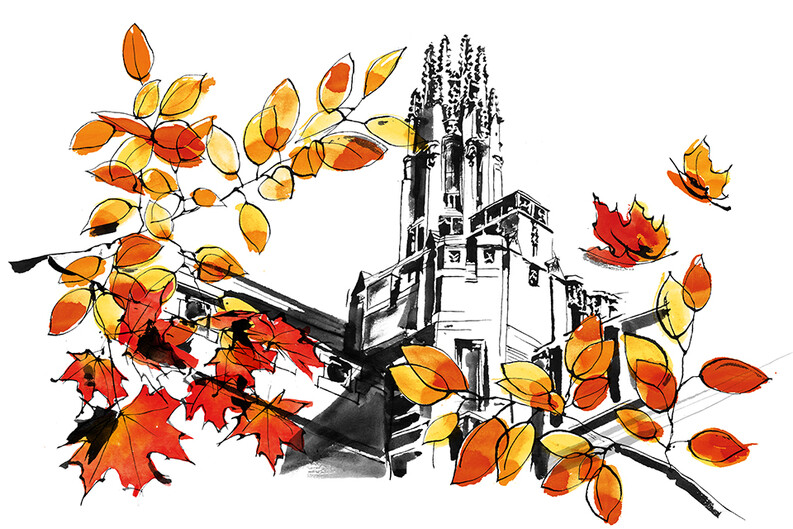Yale Law School Launches Crossing Divides Program

Yale Law School Dean Heather K. Gerken announced today the launch of the Ronnie F. Heyman ’72 Crossing Divides Program, designed to foster discourse across the political and ideological spectrum and reinforce the core values of lawyering.
The program, made possible by a generous gift from Ronnie Heyman, will establish a formal speaker series that brings together high-profile leaders from opposite sides of major national debates to discuss how they bridge differences and work to understand each other. The program will also provide co-teaching opportunities for courses and support student initiatives that reinforce this work.
“At a moment when the world is increasingly polarized, our ability to work through differences and uphold the finest values of this profession has never been more critical,” said Gerken. “At Yale Law School, we have a storied tradition of not only crossing divides, but forging friendships across divides. I am grateful to Ronnie Heyman for providing us with this wonderful opportunity to bring in distinguished guests and work with our students on building skills that are vital to successful lawyering.”
The first Crossing Divides event of the academic year is scheduled for October 17, featuring Bob Bauer, former White House General Counsel under President Barack Obama, and Ben L. Ginsberg, former counsel to the Bush-Cheney presidential campaign. Bauer and Ginsberg will reflect on their professional experiences on opposing sides of the political sphere while maintaining a true and lasting friendship. The series, which will be run through The Tsai Leadership Program at Yale Law School, will continue with a panel discussion in November with members of the faculty discussing learning and working across differences as an essential skill for law school, legal practice, and life. A full slate of events will be announced early next year.
You cannot be a lawyer or a leader without a strong sense of humility and a relentless willingness to question yourself.”
—Dean Heather K. Gerken
Heyman and her late husband, Samuel J. Heyman ’60 YC, are longtime friends and enduring donors to Yale University and Yale Law School. The Heyman Family has supported many University initiatives over the decades, including the Cullman-Heyman Tennis Center, the Heyman Chair in Legal Ethics, the Heyman Federal Public Interest Fellowships, and the Slifka Center and Heyman Commons, a kosher dining hall on campus. Heyman is Chair of GAF Industries, the largest manufacturer of residential and commercial roofing products in North America.
Heyman is an active philanthropist involved in a broad swath of institutions spanning health, humanitarian aid, and cultural affairs. She is a member of the Council on Foreign Relations and serves as the President of the Museum of Modern Art in New York City. She is also a Trustee of both the Norton Museum of Art and the Society of the Four Arts in Palm Beach, Florida. Heyman was appointed by President Bill Clinton ’73 to serve a five-year term on the National Council on the Arts.
“Ronnie Heyman is known for her generous philanthropy and her deep commitment to respectful discourse,” added Gerken. “I’m delighted to partner with her on this crucial new initiative.”
“There is no more critical place to foster open dialogue than at Yale Law School,” said Heyman. “Hopefully these sentiments will have a ripple effect, and the lecture series will serve as a model for similar discussion at other institutions.”
Over the course of the next year, Gerken said that the Law School will work to build out the Ronnie F. Heyman ’72 Crossing Divides Program so that students have many ways to engage on these critical issues and develop core leadership skills.
“You cannot be a lawyer or a leader without a strong sense of humility and a relentless willingness to question yourself,” said Gerken. “As I often say to our students, lawyers by nature are problem-solvers. They don’t stand jeering on the sidelines — they get things done by learning to reach agreement and build consensus in communities defined in part by difference.”


